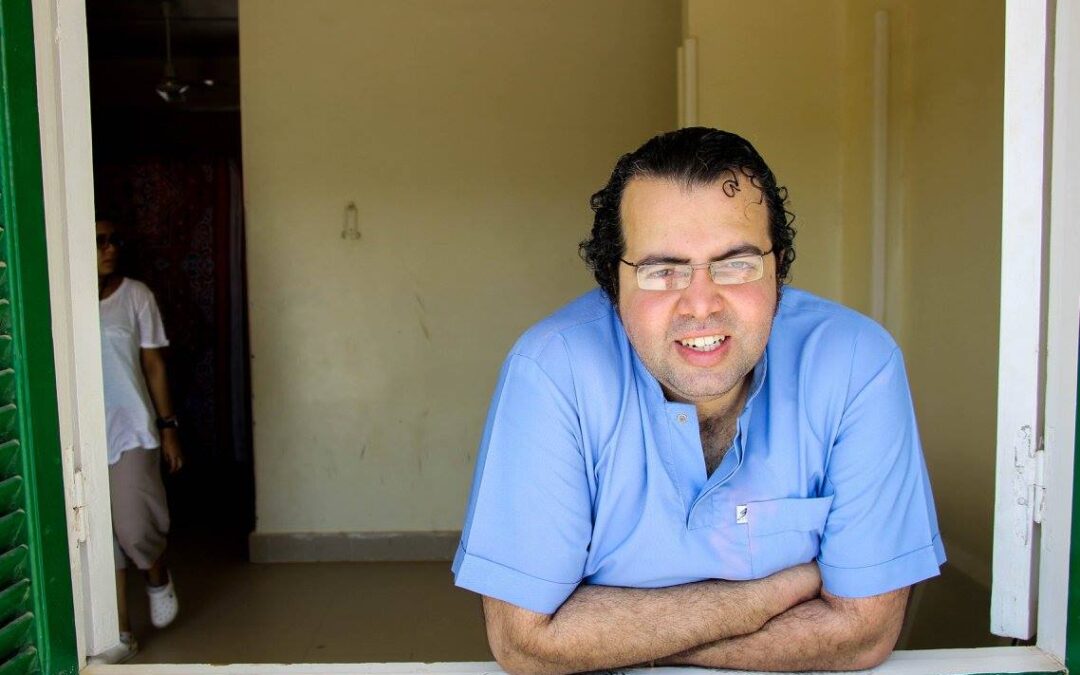
Jun 25, 2021 | News
The undersigned organizations express their deep concern about the continued disappearance of dentist and former parliamentarian, Mostafa Al-Naggar, on its 1000th day, and call on the Egyptian authorities to immediately disclose any information related to his whereabouts and to reveal his fate.
هذا البيان المشترك متوفر باللغة العربية أيضاً
The former parliamentarian, Mustafa Al-Naggar, a dentist and former head of the Justice Party, travelled to the southern Egyptian governorate of Aswan on September 27, 2018. Since then, his whereabouts and fate remain unknown. According to his wife, the last phone call between her and Mustafa Al-Naggar was on September 28, 2018, when he told her that he was in Aswan, and after that, the communication with him was cut off.
However, on October 10, 2018, his wife received a phone call from an unknown person on her home land line who told her that Al-Naggar had been arrested. Accordingly, on October 12, 2018, the family telegraphed the Public Prosecutor regarding his disappearance, and Mostafa Al-Naggar’s lawyers filed a complaint with the Aswan Prosecution on October 31, bearing the No. 1010 of 2018 Aswan petitions. The State Information Service issued a statement on October 18, 2018, denying that the security services had arrested Al-Naggar.
The Administrative Court of the State Council decided to accept a lawsuit filed by the family of Dr. Al-Naggar to reveal his whereabouts. According to the lawyer of the Egyptian Commission for Rights and Freedoms, the Circle of Rights and Freedoms in the State Council ruled on January 20, 2020 to “stop the implementation of the negative decision and oblige the Minister of Interior to disclose the place of detention of dentist and former parliamentarian Mustafa Al-Naggar” in lawsuit No. 56032/73 J, which was filed by Shaima Ali Afifi, Dr. Al-Naggar’s wife.
The ruling council of the International Parliamentary Union had issued a decision in November 2020 regarding the disappearance of Mustafa Al-Naggar, in which it expressed its concern about the failure of the Egyptian authorities to take any measures towards revealing the fate of the former parliamentarian, and calling on the Ministry of Interior to open an investigation into his disappearance.
During its session held in May 2021, the same Council reiterated its continuing concern about the Egyptian authorities’ unwillingness to disclose Mustafa Al-Naggar’s whereabouts. The same Council renewed its call on the Ministry of Interior to take the investigation into his disappearance seriously, and to take the necessary measures to locate him.
It should be noted that Dr. Al-Naggar suffers from asthma and kidney stones, and depriving him of treatment may put his life at risk. We also note that Mustafa Al-Naggar has taken legal measures to appeal the ruling by the Cairo Criminal Court issued on December 30, 2017, against him and others in absentia, imposing a sentence of three years’ imprisonment following the “insulting the judiciary case” (in case No. 478 of 2014). On 15 October 2015 the court of cassation upheld the prison sentence.
The undersigned organizations call upon the Egyptian authorities to immediately disclose any information related to Mustafa Al-Naggar’s whereabouts and fate, as well as on the Public Prosecution – as the investigative body entrusted with following up and investigating citizens’ complaints – to immediately and urgently investigate the complaints submitted by his family, and on security forces to immediately stop the practice of enforced disappearance against Egyptian citizens, and those who oppose government policies, and immediately disclose the places of detention of the forcibly disappeared.
Signatory organizations
Stop Enforced Disappearance Campaign
Arabic Network for Human Rights Information
Association for Freedom of Thought and Expression
Cairo Institute for Human Rights Studies
Committee for Justice
Egyptian Commission for Rights and Freedoms
Egyptian Front for Human Rights
Egyptian Initiative for Personal Rights
El-Nadim Center
Freedom Initiative
Human Rights Watch (HRW)
International Commission of Jurists (ICJ)
Intersection Association for Rights and Freedoms
Rafto Foundation
World Organisation against Torture (OMCT)
Contact:
Said Benarbia, Director, ICJ Middle East and North Africa Programme, t: +41-22-979-3817; e: said.benarbia(a)icj.org
Asser Khattab, Research and Communications’ Officer, ICJ Middle East and North Africa Programme, e: asser.khattab(a)icj.org
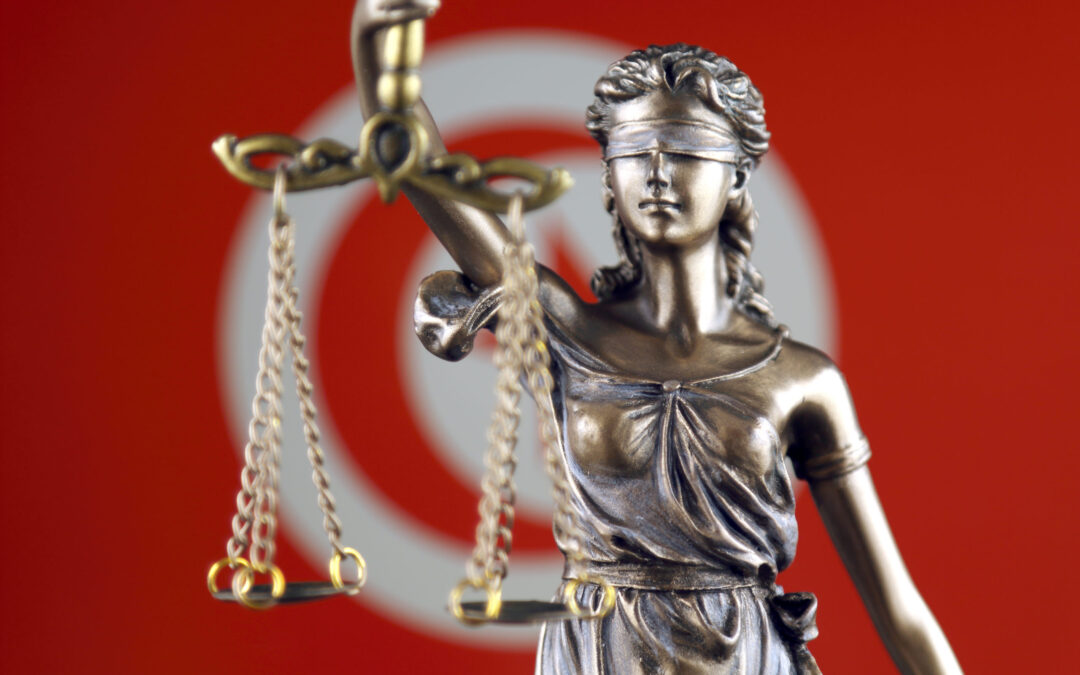
Jun 20, 2021 | News
On 19-20 June, the ICJ, in partnership with the Tunisian Association of Judges (AMT), organised a workshop on ‘Legal reasoning and judgment drafting in the cases before the Specialized Criminal Chambers (SCC)’ in Tunis, Tunisia.
Twenty-five SCC judges and prosecutors from across the country participated in the two-day workshop.
Said Benarbia, ICJ’s Middle East and North Africa Programme Director; Anas Hmedi, AMT’s President; and Martine Comte and Philippe Texier, ICJ Commissioners, were the main speakers.
On the first day, speakers and participants focused on legal reasoning and interpretation challenges before the SCC.
ICJ Commissioner Philippe Texier spoke about the principles of legality and non-retroactivity, res judicata and the non-applicability of statutes of limitations, which are all recognised under Tunisian law.
Texier underlined that, when properly understood and applied, both the principle of non-retroactivity of the criminal law and the non-applicability of statutes of limitations would not necessarily be a bar to the prosecution of crimes and gross human rights violations within the jurisdiction of the SCC, since international law, including customary international law, already proscribed them at the time of their commission.
Said Benarbia stressed the importance of applying international law and standards, especially with regard to international crimes that Tunisian domestic penal law does not proscribe yet, such as the crime under international law of enforced disappearance. With respect to the hierarchy of norms, he underscored that the Tunisian Constitution clearly recognises that international law and treaties are superior to national law.
As a result, SCC judges are required to have regard to and apply relevant international law and treaties ratified by Tunisia in adjudicating the cases before them. Judges have the power and the responsibility to interpret Tunisian law in light of international law, including, whenever necessary, by filling certain gaps in domestic legislation.
ICJ Commissioner Martine Comte then spoke about the attribution of individual criminal responsibility and modes of liability, procedural guarantees and the rights of victims and the accused, as well as reparations and guarantees of non-repetition. She emphasised that, under the 2013 Tunisian law on Transitional Justice, guarantees of non-repetition are a constitutive and fundamental element of the transitional justice process.
Comte also explained that the doctrine of command responsibility is a well-recognised general principle of international law, established and applied in many jurisdictions, and therefore to be applied, as relevant, in cases before the SCC.
Comte underlined the importance of enforcing and monitoring the respect of procedural guarantees and the rights of both the victims and the accused, including the right to the presumption of innocence, the principle of equality of arms and the right to adversarial proceedings.
She added that the first reparation of all is the establishment of the truth and of the facts of each case, which, in turn, aims to restore the dignity of victims and their families by recognizing the harm they suffered.
Finally, Comte and the other speakers talked about conviction and sentencing and the challenges faced by SCC judges when the sentence is not defined in nor international law nor Tunisian law.
On the second day, expert speakers and participants discussed judgment drafting in cases before the SCC. They discussed how SCC judges, while addressing the challenges related to the complexity of the cases at hand, can ensure organized, clear, and effective judgment drafting, including through the establishment of a coherent judgment outline; and by providing a clear analysis of factual issues and how they should be resolved.
Texier stressed that the SCC are not exceptional in their nature: they are composed of ordinary judges and have to adhere to the standards of fair trial. SCC judgments differ from ordinary judgments in that they carry a historic significance, by establishing a negated truth and contributing to the duty of remembrance, both of which are crucial elements of the transitional justice process.
Said Benarbia spoke of one of the main challenges facing the work of the SCC, namely, the voluntary absence of the accused who do not appear before court despite being summoned. Drawing on examples from other transitional justice contexts, he concluded that in this respect Tunisia is an exception, as the transitional justice process is typically accompanied by a political will that ensures the presence of the accused.
Benarbia also stressed the importance of the presence of the accused before the Court as one of the fundamental guarantees of the right to a fair trial.
Comte underscored the need to comply with the law regarding the admissibility of evidence (e.g., ensuring that a confession has not been obtained by torture or other cruel, inhuman or degrading treatment or by any other coercive means).
She then addressed the need for the judgment to provide a thorough analysis of the admissible evidence presented at trial on which the ultimate decision is rendered in light of the applicable law and stated that, under Tunisian law, the judges’ decision must be based on firm conviction, beyond any reasonable doubt.
Finally, Benarbia presented an outline for judges to rely upon when drafting the first SCC judgments, based on several judgments rendered by international tribunals. He underscored that such a structured and comprehensive outline would help judges in drafting coherent and exhaustive judgements.
Contact:
Said Benarbia, Director of the ICJ’s Middle East and North Africa programme, email: said.benarbia@icj.org phone number: +41 79 878 35 46
Asser Khattab, Research and Communications Officer at the ICJ’s Middle East and North Africa programme, email: Asser.khattab(a)icj.org
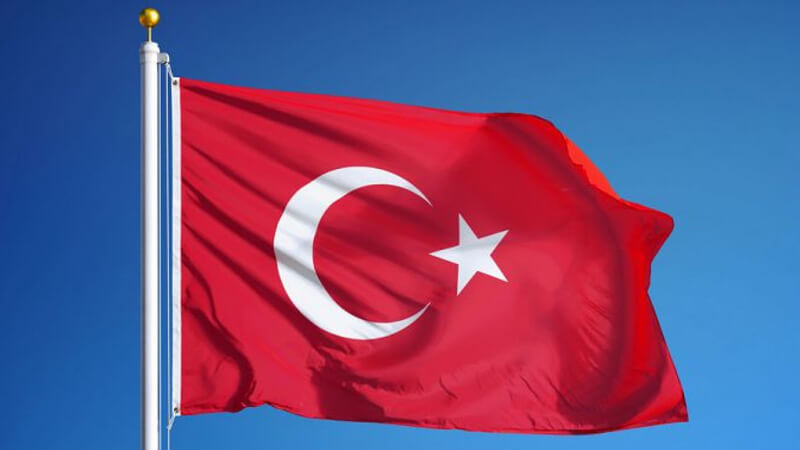
Oct 27, 2020 | Agendas, Events, News
The International Commission of Jurists and the Human Rights Joint Platform (IHOP) invite you to a conversation on the past and current situation of the fight against impunity in Turkey with eminent international and Turkish expert.
Registation is on a first come first served basis by writing to: ihop@ihop.org.tr
Join our speakers:
– Juan Mendez, former UN Special Rapporteur on Torture
– Wilder Taylor, Former Secretary-General of ICJ and chair of Uruguary NPM
– Luciano A. Hazan, Member of the UN Working Group on Enforced and Involuntary Disappearance
– Melis Gebeş, Lawyer, Truth Justice and Memory Center:
– Feray Salman, General Coordinator of Human Rights Joint Platform
IHOPICJ-ZoomConference-ImpunityTurkey-Agenda-2020-ENG (download the agenda in English)
IHOPICJ-ZoomConference-ImpunityTurkey-Agenda-2020-TUR (download the agenda in Turkish)
The event is part of the REACT project: implemented jointly by ICJ and IHOP, this project seeks to support the role of civil society actors in turkey in ensuring effective access to justice for the protection of human rights. This project is funded by the European Union. The views expressed in the event do not necessarily reflect the opinion of the EU.
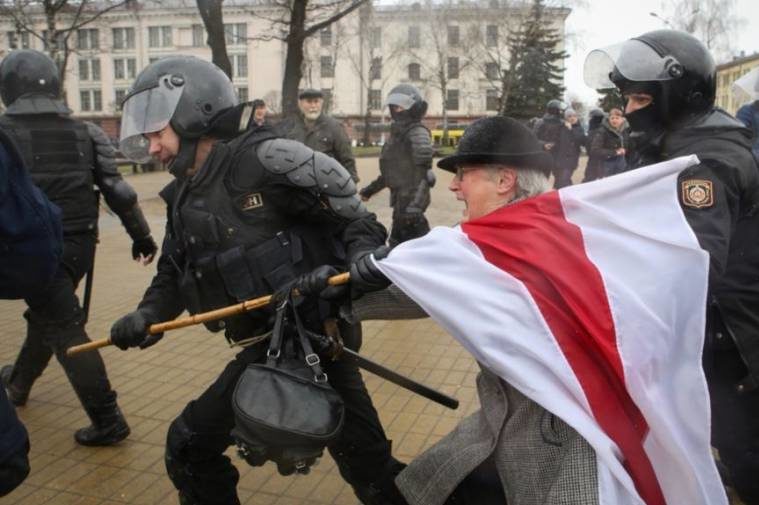
Aug 31, 2020 | Advocacy, News
Today, the ICJ called on Belarus to comply with its international human rights law obligations in its response to the protests taking place in the aftermath of the presidential elections and in the treatment of those detained.
This includes immediately releasing persons arbitrarily detained, providing prompt access to lawyers for those still detained, accounting for the fate and whereabouts of missing protestors and promptly and effectively investigating torture and other ill-treatment.
The widespread arbitrary arrests of peaceful protesters, and credible allegations of torture and ill-treatment and enforced disappearances of detainees, are particularly alarming in light of obstacles faced by detainees in accessing lawyers, the ICJ said.
The ICJ recalls that under international human rights law, all persons have the right to peaceful assembly, and any restriction of this right must be provided in law be strictly necessary and proportionate to a specified legitimate purpose. The mass arrest of protesters does not appear to meet these requirements.
Belarus has obligations, including under treaties to which it is party, to respect the right to liberty and refrain from arbitrary arrests or other unwarranted interferences with the freedom of assembly, or freedom of expression, of protesters, protected under international law.
Law enforcement authorities must respect the right to life and the prohibition on torture or other ill-treatment at all times. Allegations of arbitrary killing, enforced disappearances and torture and other ill-treatment must be promptly, thoroughly and independently investigated, and those responsible brought to justice.
Effective remedies must be provided to victims of such serious human rights violations.
The ICJ is concerned about reports of the widespread denial of access to a lawyer and further obstacles that lawyers face while carrying out their professional duties in the current context in Belarus.
Reportedly, lawyers are not provided with access to the case file or further information necessary for the provision of effective legal assistance to their clients. This is of particular concern in light of multiple reports of torture or other ill-treatment of those detained following the election.
The ICJ stresses that the right of access to qualified legal representation is crucial for the protection of the human rights of those arrested in connection with the current political upheaval in Belarus.
The right of access to a lawyer is recognized as an essential element of the right to a fair trial and the right to liberty, protected under the International Covenant on Civil and Political Rights, to which Belarus is a party.
The UN Basic Principles on the Role of Lawyers provide that governments should ensure that lawyers are able to perform all of their professional functions without intimidation, hindrance, harassment or improper interference and should be able to consult with their clients freely and have access to appropriate information, files and documents in their possession or control in sufficient time to provide effective legal assistance to their clients.
It is essential that lawyers and other human rights defenders can carry out protection of human rights of their clients especially in times of emergency.
The ICJ also calls on the Belarus Republic Bar Association to bolster its efforts in protecting its members who provide legal representation in cases related to the ongoing protests.
Background:
The Republic of Belarus ratified the International Covenant on Civil and Political Rights in 1973
Following the presidential elections of 9 August 2020 in Belarus, widespread protests across Belarus took place following the discredited result, which were recognized as neither free nor by the European Union and other observers. Following the initial dispersal of these protests by the authorities, more than 6000 people were arrested and detained, many arbitrarily. There is credible evidence that many of those arrested or detained have been subjected to torture or other ill-treatment and that decisions regarding their arrest and detention have been made by courts temporarily established in detention centres.
While estimates of numbers differ, the whereabouts of at least tens of those who took part in the protest have not been established to date. One of the missing persons, Nikita Krivtsov, was recently found dead in a forest near Minsk.
The reports that defence lawyers were denied access to those arrested include high-profile cases, such as the case of the former presidential candidate Victor Babaryka whose lawyer was not allowed to see his client in the detention centre for more than a week.
According to the Belarusian Republican Bar Association, lawyers face problems with meeting their clients held in the detention centres and access to the case files and further information necessary to carry out their professional duties.
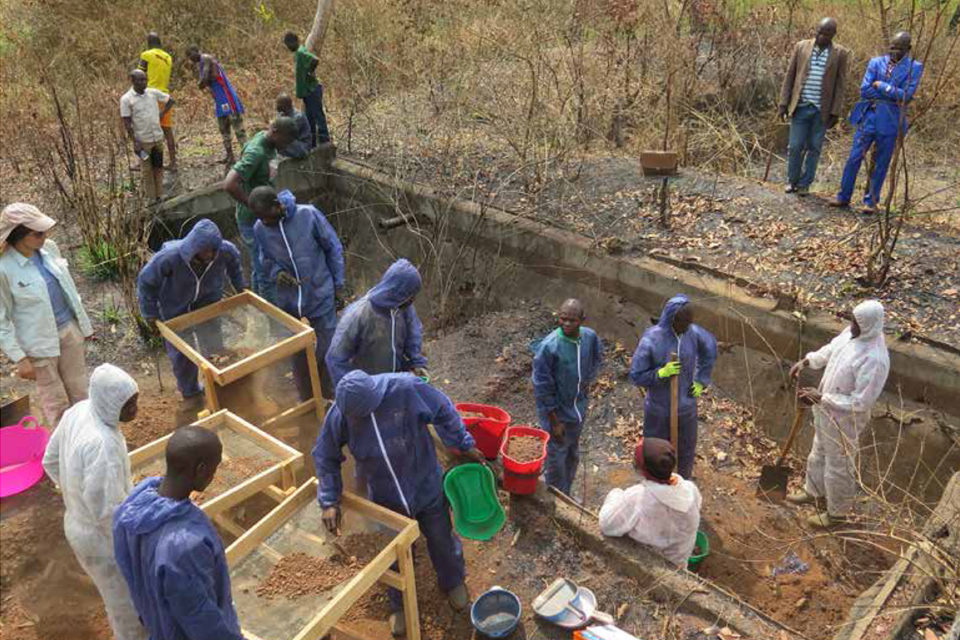
Aug 20, 2020 | News
Despite remarkable efforts to recover and identify human remains in Latin America, there are still thousands of cases where remains have not been identified and returned to their family. Crucially, families still struggle to understand and participate in the forensic process.
To address this issue, el Equipo Argentino de Antropología Forense (EAAF) launched today a Forensic Guide which aims at providing practical and accessible information on the investigation, recovery, and analysis of human remains.
Currently, this publication is only available in Spanish but an English version will be provided in the forthcoming months.
The guide will be particularly useful for people who have no previous forensic knowledge and will contribute towards improving the understanding and participation of victims and civil society organizations in the search for disappeared persons.
The Guide was written by Luis Fondebrider, the executive director of the EAAF and takes into account international standards including the revised Minnesota Protocol on the Investigation of Potentially Unlawful Death (2016).
The ICJ, the Equipo Peruano de Antropología Forense (EPAF) and the Fundación de Antropología Forense de Guatemala (FAFG) provided input during the Guide’s development.
The Guide was launched during a Webinar. The key speakers were Luis Fondebrider from the EAAF; Claudia Rivera from the FAFG and Franco Mora from the EPAF. It was moderated by Carolina Villadiego from the ICJ.
At the launch, all the forensic experts emphasized the central role that the families of disappeared persons must play in the process of investigation, recovery, and analysis of human remains. In particular, it was acknowledged that they not only have key information to find the remains but also, they have driven the processes.
Background
The Guide was produced as part of a regional project addressing justice for extrajudicial killings and enforced disappearances in Colombia, Guatemala, and Peru, which is coordinated by the ICJ.
The aim of the project is to promote the accountability of perpetrators and access to effective remedies and reparation for victims and their families in cases of extrajudicial killings and enforced disappearances in Colombia, Guatemala and Peru – and Latin America more broadly – through effective, accountable and inclusive laws, institutions and practices that also reduce the risk of future violations. The project is supported by the EU European Instrument for Democracy and Human Rights (EIDHR).
The ICJ’s partners include the Asociación de Familiares de Detenidos-Desaparecidos de Guatemala (FAMDEGUA), Asociación Red de Defensores y Defensoras de Derechos Humanos (dhColombia), Equipo Argentino de Antropología Forense (EAAF), Equipo Peruano de Antropología Forense (EPAF), Fundación de Antropología Forense de Guatemala (FAFG), and the Instituto de Defensa Legal (IDL).
Contacts:
Kingsley Abbott, Coordinator of the Global Accountability Initiative, e: kingsley.abbott(a)icj.org
Carolina Villadiego, Legal and Policy Adviser, Latin America, and Regional Coordinator of the Project, e: carolina.villadiego(a)icj.org









